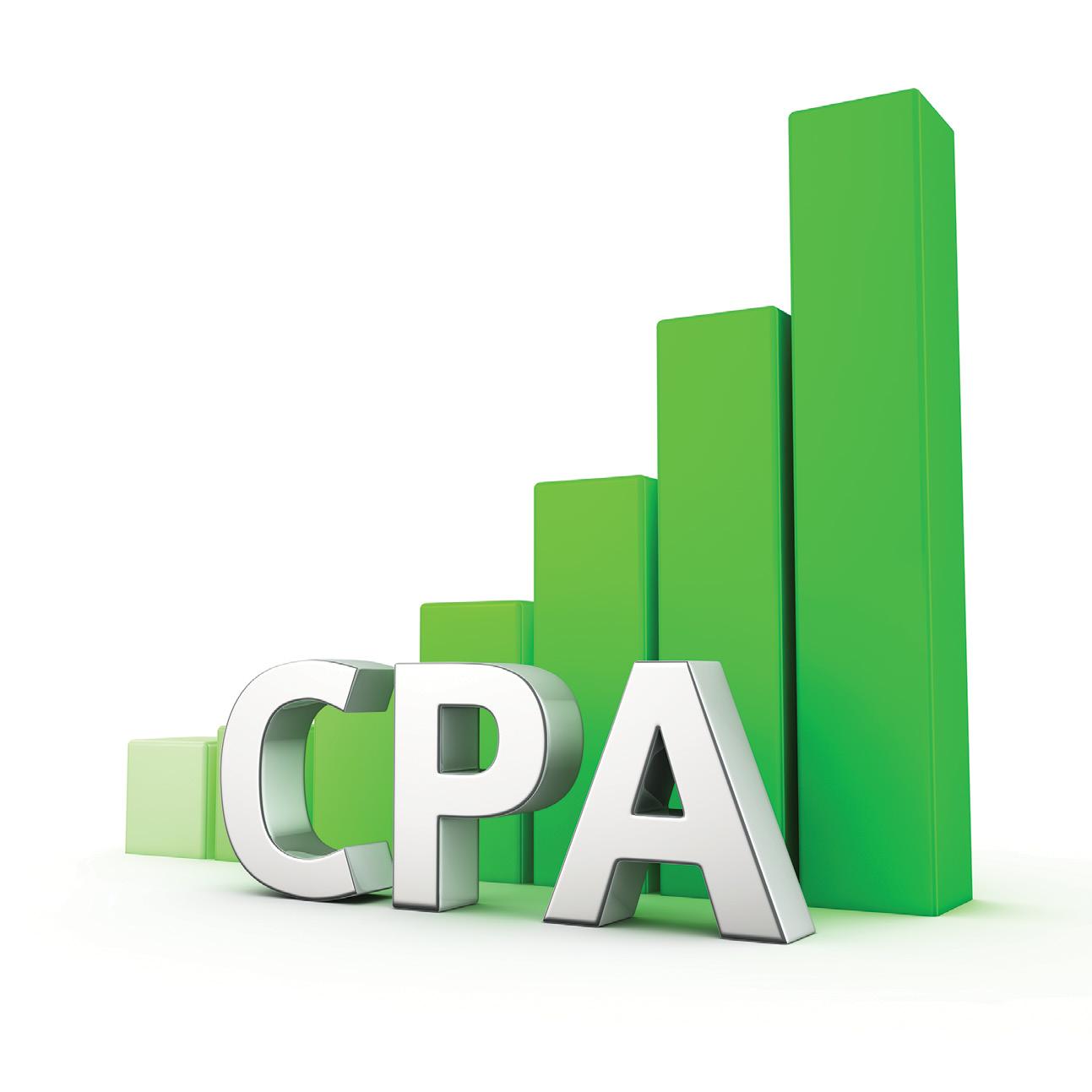
6 minute read
focus on careers
from CPA2b Magazine - Fall 2021
by WICPA
3 CPA Preferred

In a numbers-driven profession, three letters – CPA – have led public accounting professionals to career advancement and satisfaction.


By Sharon Zalewski
Any CPA will tell you the CPA designation offers access to jobs with higher authority and responsibility and greater career stability. CPAs have the potential for earnings significantly higher than non-CPAs in the same positions. But for CPAs who choose public accounting as their lifelong career, it’s not necessarily the earnings that keep them there. Variety of work and clients has long been the spice of public accounting life. And for several Wisconsin-based CPAs, the ultimate satisfaction comes from the relationships this variety affords.
“In corporate, you’re focused on one specific area and one business; whereas in public accounting, your whole career is about helping people from many companies to save money, to develop efficiencies and reduce their headaches, and to strengthen their internal control structure,” said Mark Juedes, CPA, a principal at CliftonLarsonAllen (CLA) in Madison. “With the breadth of what you learn dealing with clients in various industries, you become an expert in business, not just accounting,” said Michael Matuszak, CPA, a shareholder at KerberRose in Wausau, whose tax and accounting clients view him as a trusted adviser. “It’s pretty satisfying to see your role in helping clients be successful. Their appreciation is fulfilling.”
Mark Juedes Michael Matuszak
Why CPA?
Earning a CPA license is central to becoming that trusted adviser. “Clients expect to see the designation,” said Matuszak. “It puts their minds at ease.”
“It’s the letters,” confirmed Anne Kirschling, CPA, a partner at Wipfli LLP in Milwaukee, referring to the technical aptitude the CPA designation represents. “Clients want their accountants to be well-rounded and stay atop the guidance.” The CPA designation is also crucial to career growth. “The decision of whether to take the exam is easy: If you want to advance, it’s just part of the program,” Juedes said. “For the most part, you can’t advance past the senior level until you’ve received your CPA license.” That is true, according to Kirschling, who pointed out that having the CPA credential is the only formal requirement Wipfli has for promotion to manager. “I absolutely encourage securing the CPA,” she said. “It makes sure doors aren’t closed on you and helps open others.” “Even if you want to go into private after a few years, nearly every position application says ‘CPA preferred,’” said Juedes, who noticed during a corporate internship while in college that the executives all came from public accounting firms and had their CPA licenses. “And even if you use public accounting as a stepping stone — as many do — if you don’t get the CPA certification, your career will most likely plateau.” “The short-term commitment and sacrifices you make to ensure a successful outcome with
I absolutely encourage “
Anne Kirschling securing the CPA. It makes sure doors aren’t closed on you and helps open others.”

I can’t imagine not taking the “
the exam are well worth it,” said Margo Rosen, CPA, CGMA, managing partner at Carlson SV in Amery. “I can’t imagine not taking the exam after making the commitment to the degree. The profession as a whole is greatly respected.”
Path to partnership
While the CPA designation plays a crucial role in career advancement, so do coaches and mentors. When newly minted accountants begin their careers, they spend the first couple of years developing a deeper understanding of accounting by absorbing information and interacting with others, including seasoned professionals. “At Wipfli, we pair you with performance coaches,” Kirschling said. “Having people coach you in soft skills — especially communication styles to elevate and build conversations — is very important.” “The search for talent is very competitive,” said Rosen. “Technical skills are vital, but with the right training and development these will come, and firms will make the investment in those who are the right fit. Soft skills are an important component of that.” Kirschling has been with Wipfli her entire career, progressing to partner in June 2020, 13 years after she started as staff accountant.
“My mentors and coaches were paired with my career aspirations,” Kirschling said, adding that she did not aspire to partnership early on because of the time and effort required. “But this has evolved as I’ve grown in my career and as I saw that I could be what I wanted to be. It’s about the effort you put in, and everyone’s timetable is different.” Aside from the CPA requirement to become manager, “all other promotion levels at Wipfli are based on certain attributes and how well you can perform as it relates to those,” she said. These may include coordination of client engagements, a high level of technical competency, time management skills, developing associates and their skillsets, and cultivating strong relationships within and outside the firm. “As you progress, you learn, do more and work your way up,” she said.
Professionals must be invited to the partnership. “This normally requires excelling at a number of things that revolve around client service, operational effectiveness, leadership and business development,” Kirschling said.
Other leadership positions
KerberRose offers tiered ownership. “People appreciate having a piece of the pie even if it’s a smaller piece,” said Matuszak, who made shareholder eight years after graduation. “We have people who are becoming shareholders sooner and buying in gradually over time. Our mentor program is focused on helping managers become shareholders.” Apart from monetary rewards, becoming a shareholder has enabled Matuszak, like his contemporaries, to become more involved in the strategic direction of the firm and manage his own destiny. “I get to be the go-to for my clients and ensure staff are productive. Also, I am involved in strategic committees rather than focused only on billable work.” Firms have recognized that not all public accounting professionals may have rainmaking skills or desire to be owners of the firm but still can make valuable contributions through a nonequity partner position. “At CLA, we want owners as well as professionals who may not wish to be owners but have the same responsibilities,” said Juedes. “Being a principal gives you the chance to be compensated well and prove yourself to join the ownership circle or have the title and the responsibilities without the economic risk that comes with partnership.” Professionals can advance to principal after succeeding at the manager level. CLA also offers a director career path. “It used to be that you either became partner or left the firm,” Juedes said. “But why would we ever want to push out of the firm good, competent people who serve clients well but don’t want to pursue ownership?” Juedes, who rose from audit and tax associate to senior associate to manager to principal within the course of seven years, aspires to be a partner. “Business development seemed harder my first couple years, but the longer you’re in your career, the bigger network you develop and the faster things happen,”

he said. “Being personable, getting out and talking to people and seeing how you can help makes things happen more easily. It’s really not ‘sales’ but sincerely trying to help people, which comes naturally.” For those who aspire to leadership, as the professionals in this article have attested, the possibilities for high-level positions within public accounting are numerous — with that one caveat: You need the CPA credential. Once that is accomplished, the opportunities and rewards are almost endless.
Sharon Zalewski is a freelance writer based in Richfield. Contact her at sharonzalewski@yahoo.com.






